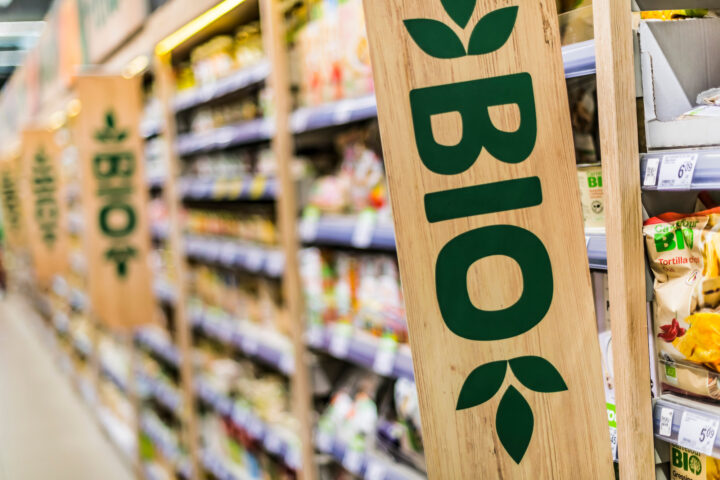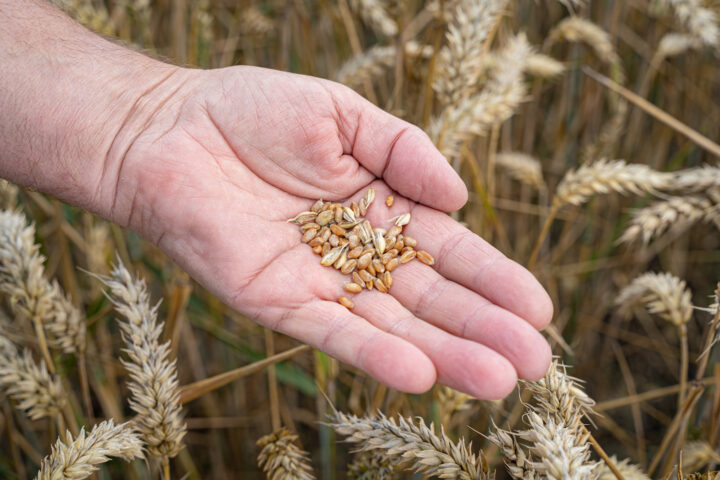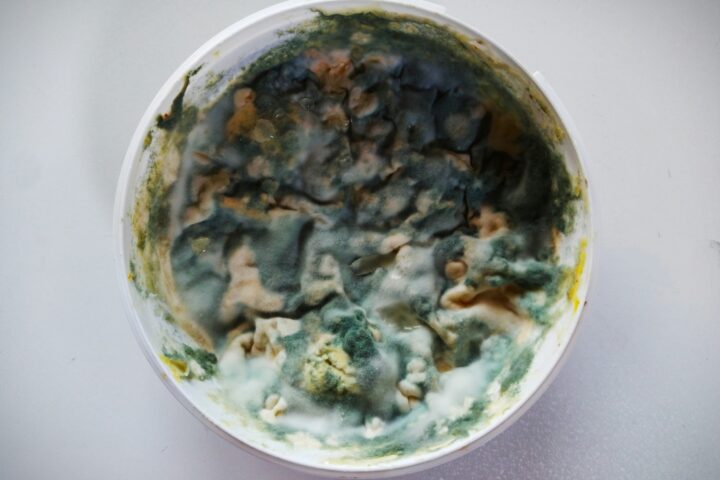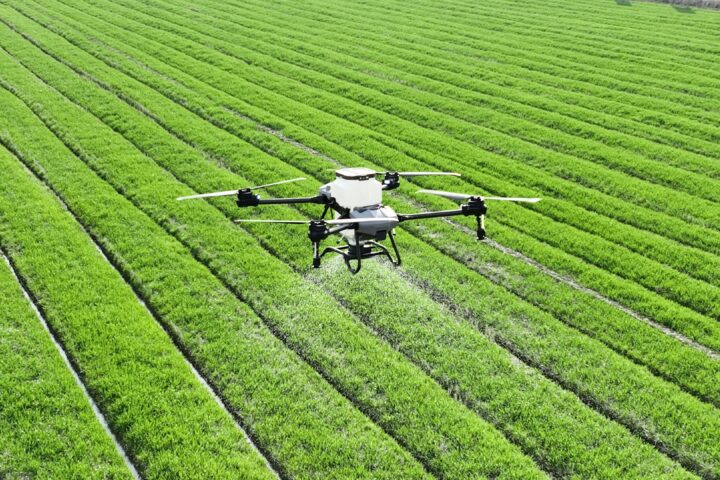
Creeping threat to food safety
The Federal Food Safety and Veterinary Office (FSVO) issued a warning about a toxin that occurs naturally in moulds. Known as ochratoxin A, it is carcinogenic and genotoxic. Consumers were advised against consuming the affected products and to destroy any purchased packages. Although controls uncovered the case, food safety is generally at risk from contamination. Carcinogenic mycotoxins are particularly dangerous.
Monday, July 6, 2020
The most important facts in brief:
- Safe and healthy food cannot be taken for granted, even in Switzerland.
- Contamination with listeria or noroviruses occurs time and again.
- So-called mycotoxins are particularly dangerous. These are moulds that are carcinogenic.
The news must have come as a great shock to many parents who only wanted the best for their children when buying organic products. The Federal Food Safety and Veterinary Office (FSVO) has issued a warning about enterobacteria in Bimbosan cereal food «Bio-Hosana». The organic porridge can jeopardise children's health. The problem for consumers is that they have to blindly trust the manufacturers. The impurities are not recognisable to the naked eye. However, Bio-Bimbosan is not an isolated case. Food contamination occurs time and again. And the FSVO then warns of listeria in cheese or noroviruses in mussels. Food safety is at risk. Mycotoxins are particularly dangerous. These are fungal toxins that attack cereals or nuts, for example.
Moulds cause many liver cancer deaths
One of the most dangerous fungal toxins is aflatoxin. It is found in mould fungi. According to the Consumer Choice Centre, every year in Europe alone, hundreds of thousands of liver cancer deaths are caused by poisoning with mycotoxins. The problem is even greater in developing countries. Experts believe that the consequences of aflatoxin poisoning are more deadly than malaria and tuberculosis. Around 40 per cent of liver cancer deaths in Africa are linked to the ingestion of aflatoxins.
Wide spread of mould toxins
Dangerous moulds can spread both before and after the harvest if adequate plant protection with fungicides is not used. According to the Consumer Choice Centre, four million bags of maize recently had to be destroyed in Kenya because contamination with mycotoxins was detected. However, the contamination often goes unnoticed and ends up in the food chain with devastating effects. Dairy products are also at risk if animal feed is contaminated. The spread of moulds is promoted by warm and humid climates, damage caused by insects and improper storage. The fungal toxins are found in a wide variety of products. The spectrum ranges from wheat to pistachios, hazelnuts, spice mixes and watermelons. The use of fungicides can prevent the spread of moulds. They can stop the growth of the fungi both in the field and in the warehouse and avert the risk of poisoning. Based on recent scientific studies, the Federal Food Safety and Veterinary Office expects higher levels of mycotoxins in foodstuffs in the future, as well as the emergence of new mycotoxins or new combinations of mycotoxins/foodstuffs. Changes in agricultural methods can also have an influence on the occurrence of mycotoxins in food.
Fungicides effectively combat mycotoxins
From the point of view of food safety and consumer health, it is irresponsible to refrain from using fungicides until alternative technologies such as gene editing are available. Gene editing can strengthen the defence mechanisms of plants against mould infestation. However, those who refrain from using fungicides without an alternative are jeopardising human lives. However, the creeping threat to food safety and health posed by mycotoxins is still far too little recognised. Pesticides are often criticised, but in reality, not using fungicides can be fatal. In this context, it is particularly controversial that a popular initiative in Switzerland wants to ban the use of synthetic fungicides - both for domestic production and for imports. This would have devastating consequences for food safety.
Good to know
Contaminated food is a major danger. Every year, around 600 million people worldwide suffer from food-borne diseases. An estimated three million people die from illnesses caused by contaminated or spoilt food or water. These terrible numbers of victims affect every part of the world. In some regions, great progress has been made since the 1980s, but the problem is still widespread and urgent.
Food safety hazards can occur anywhere from the field to our plate. Many of these hazards arise during food preparation. Every cook must take all available precautions to keep their kitchen clean and safe. Less well known are measures that ensure food safety at earlier stages of the process. For example, on the farms where they are produced. Food safety starts with growing practices, which include protecting crops from contamination with pathogenic microorganisms and potential toxins.
Sources
Syngenta, 8 June 2020: International Food Safety Day
Consumer Choice Centre (2020): Essential Food Safety: Preventing Mycotoxin Poisoning In Europe – A Toolkit For Policy Makers
Federal Food Safety and Veterinary Office (Briefing Letter, 20 October 2020): Mycotoxins in Food, Possible Development and Emerging Mycotoxins
Related articles

Organic products more frequently affected by recalls
Organic products have to be taken off retailers’ shelves at an above-average rate. The reason for this is toxins from plants harvested together with the organic produce or from molds. They can be controlled less well in organic agriculture than in conventional agriculture.

Risks to Swiss food security
Despite the Covid 19 pandemic, food security in Switzerland was guaranteed at all times. Still, we should not feel a false sense of security.

Creeping threat to food safety
Food safety is in danger. Mycotoxins are particularly dangerous. These are fungal toxins that attack cereals or nuts, for example.

Pesticides in Green Smoothies
After countless recipes for Christmas cookies, festive roasts and cocktails, the advice on losing weight, detoxing and beautifying oneself now takes centre stage. Most of it is sheer nonsense.

Natural Toxins: An Underestimated Risk in Our Food
Safe food cannot be taken for granted. While chemical substances are often the focus of public criticism, reality shows that the greatest risks to food safety are of natural origin. Recent recalls of infant food products illustrate how insidious bacterial toxins or moulds can be.

Herbal Teas: Making You Sick Instead of Slim
Plant protection products are frequently the focus of public criticism. Far less attention is paid to the fact that natural ingredients in teas and dietary supplements are also biologically active and can pose health risks.

Ensuring Food Security Through Innovation
Agriculture stands at the centre of a global field of tension shaped by climate change, geopolitical crises and growing demand for food. Insights from the World Economic Forum in Davos show that the industry’s response lies in the intelligent combination of digital precision and biological progress.

